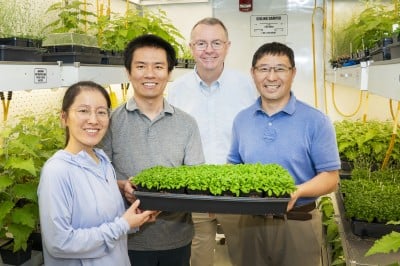Research conducted by biologists at Brookhaven National Laboratory has unveiled a significant finding in plant biology: a unique protein that is essential for the survival of plants. This discovery highlights a critical aspect of metabolic processes shared among plants, animals, and fungi, despite their fundamental differences.
The protein, which operates within a specific metabolic pathway, is exclusive to plants. It plays a pivotal role in their ability to thrive and adapt to environmental challenges. This research not only enhances our understanding of plant biology but also opens doors for potential agricultural advancements.
Insights into Plant Metabolism
The identification of this protein is a breakthrough in understanding how plants manage their metabolic processes. According to the researchers, the protein is integral to the way plants convert energy and nutrients, influencing their growth and survival. The implications of this research extend beyond academia, potentially impacting agricultural practices and food production.
Previous studies have indicated that while plants, animals, and fungi share certain metabolic processes, the specific proteins involved can vary significantly. This unique protein underscores the evolutionary adaptations that plants have developed over time. The findings, published in a recent scientific journal, offer a detailed look at how this protein functions at a molecular level.
Implications for Future Research and Agriculture
Understanding the role of this plant-specific protein could lead to innovative approaches in crop management. By enhancing or modifying this protein, scientists may develop plants that are more resilient to climate change and pests. Such advancements could significantly boost agricultural productivity and sustainability.
As global food demand continues to rise, research like this becomes increasingly vital. The work of the biologists at Brookhaven National Laboratory represents a crucial step towards more sustainable agricultural practices, ensuring that food supply can meet growing population needs.
In summary, the discovery of this essential plant protein not only deepens our understanding of plant biology but also presents exciting possibilities for future developments in agriculture and food science. The research team continues to explore the broader implications of their findings, aiming to apply this knowledge to real-world challenges facing global food production.


































































